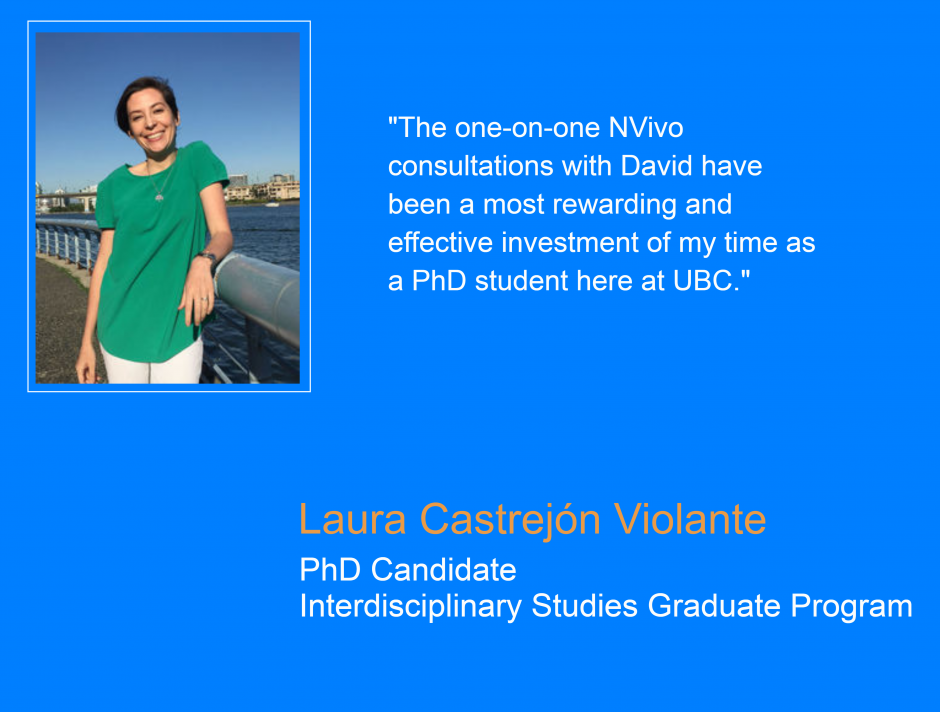
Laura Castrejon is a PhD Candidate in the Interdisciplinary Studies Graduate Program. She is co-supervised by Professor David Boyd, Professor Navin Ramankutty, and Professor Emeritus Graham Riches. Over her time at UBC, Laura has visited the Research Commons numerous times. We wanted to share our interview with Laura with you to provide perspective on what the Research Commons can do for you as a graduate student.
Q1. Could you tell us about your research area and topic?
Amidst our complex global food crisis, questions regarding the role of human rights have been increasing. The potential of the human right to food, to provide just, sustainable, and healthy food for all has been widely discussed in academia. Supporting these claims and in compliance with international human rights obligations, 30 countries have explicitly recognized the right to food at the constitutional level. However, there is scarce research empirically analyzing the implementation and exercise of the right to food beyond its constitutional recognition. Correspondingly, it is unclear whether the right to food has helped alleviate food insecurity and if this fundamental right is delivering the sustainable food system promised. As a result, there is little evidence for how this constitutionalized human right could improve its performance. My doctoral research focuses on these knowledge gaps using legal and public policy global data.
Q2. What challenges did you face in your research that made you decide to come to the research commons?
I needed to do a systematic qualitative analysis on the substantive components of the right to food. But I did not have any experience with a qualitative software or coding for that matter. The vast majority of the research done in my lab (LUGE lab) is quantitative, so I had to look for help elsewhere.
Q3. Which particular Research Commons one-on-one consult sessions and workshops have you attended (for which tools)?
I had heard briefly about NVivo and decided to take a couple of the Research Commons NVivo for Mac workshops. Amir and David, did an excellent job showing the possibilities of NVivo, but I felt I need a more personal support and a slower pace and more reflective learning experience. Ever since, I have been attending one-on-one consultations with David.
Q4. How has the Research Commons helped you along in your research?
The one-on-one NVivo consultations with David have been a most rewarding and effective investment of my time as a PhD student here at UBC. These kind of consultations have provided me with an NVivo expert who patiently and non- judgementally has been hearing all my questions. His in-depth and well-developed answers have been guiding me through the intricacies of NVivo and have left me with the certainty that I can do it, that I can tame NVivo and use it to improve my research. An unexpected but most valuable outcome has been the one resulting from discussing my research with another graduate student. David’s generosity of knowledge transcends the NVivo arena and has enriched the perspective at the very core of my research.
Q5. What advice can you give other graduate students about using the Research Commons for support doing research?
If you need help, go to the UBC Library Research Commons, you will be guided; if you are on top of your game, still go, you will be lifted.